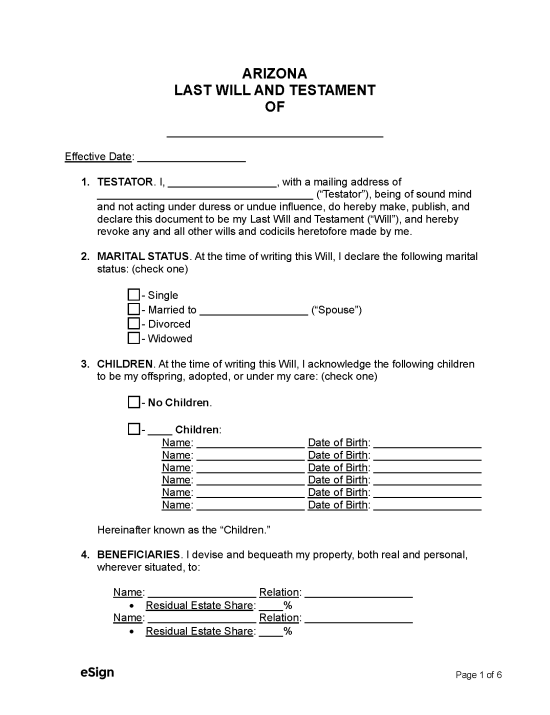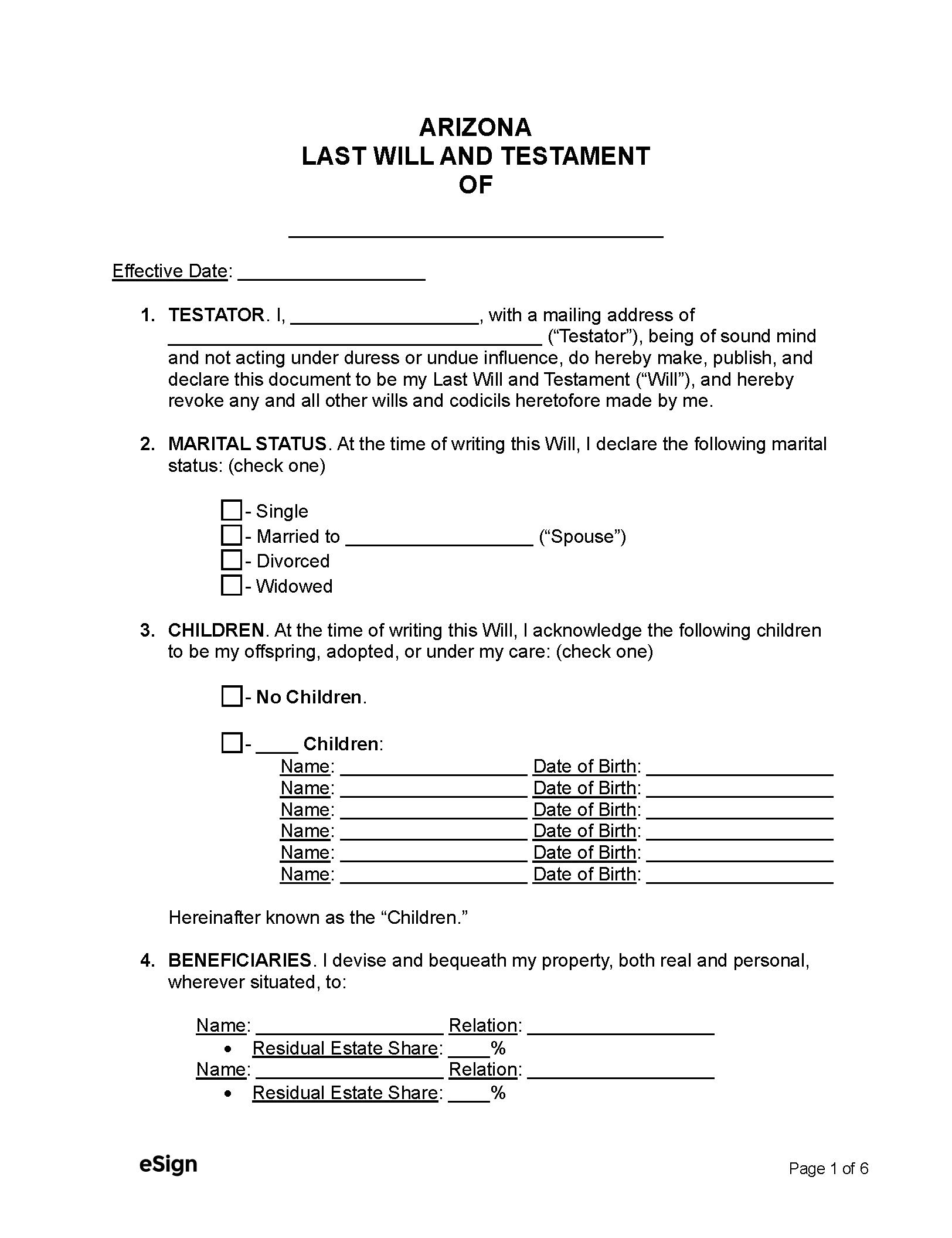State Laws
- Minimum Age – 18[1]
- Signing Requirements – Testator and two witnesses.[2] For handwritten wills, only the testator’s signature is required.[3]
- How to Revoke – A will can be canceled by executing a new version or performing a “revocatory act” that includes burning, tearing, or rendering unreadable.[4]
Probate in Arizona
Application for Informal Probate
In Arizona, probate proceedings must be initiated within two years of the testator’s death.[5] The appointed representative must file the decedent’s Last Will and Testament at the Superior Court in the county where they resided and apply for informal or formal probate.
Informal probate – Most commonly used; requires no hearings and little court oversight.
Formal probate – Only necessary when the decedent’s will is contested, or they left no will.
After court requirements have been fulfilled and the estate has been distributed, the representative must complete and file the Closing Statement and Proof of Mailing, which cannot be earlier than four months after they were appointed.[6]
Small Estates
Non-Licensed Fiduciary
If the personal representative isn’t a licensed fiduciary, they must undergo the Supreme Court-mandated Personal Representative Training Module.
Only after completing this training may the individual handle the decedent’s estate and, eventually, distribute the assets according to the will.

